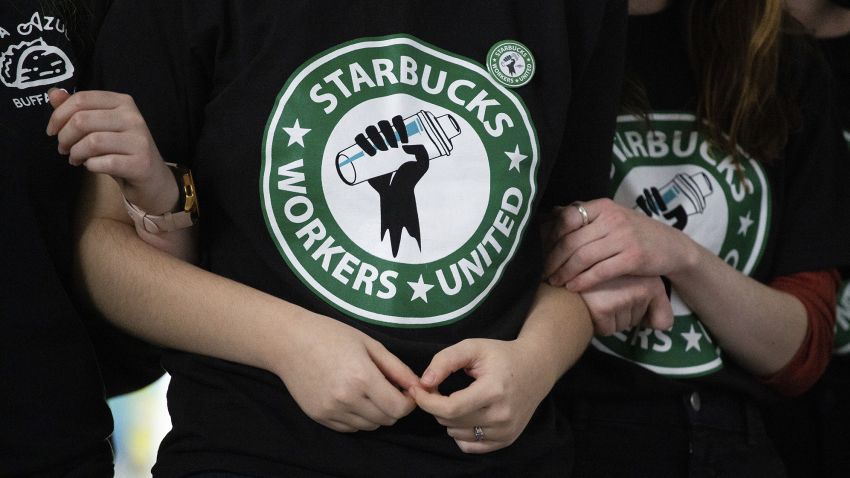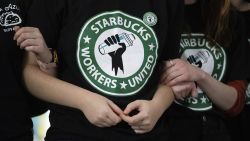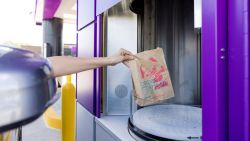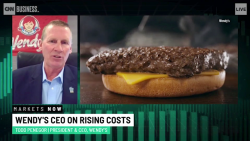While a debate unfolds online about Starbucks’ new credit and debit card tipping option, some workers are frustrated — and it has nothing to do with the etiquette of tipping. Union organizers who asked for this new feature months ago are being left out.
It’s been about a year since the first Starbucks store voted to unionize, setting off a national movement. Early in the effort to unionize, organizers called for better pay and more input into how stores are run. They also wanted a better tipping option.
“One of the first public demands that we made last fall, when our campaign launched, was for credit card tipping,” the Starbucks Workers United said in a statement to CNN. “This is a clear case of union workers pressuring Starbucks to improve working conditions for all Starbucks baristas.”
As it tries to fend off the growing wave of unionization, Starbucks has been rolling out new benefits and perks that are only guaranteed for employees at non-union stores. Card tipping is no exception.
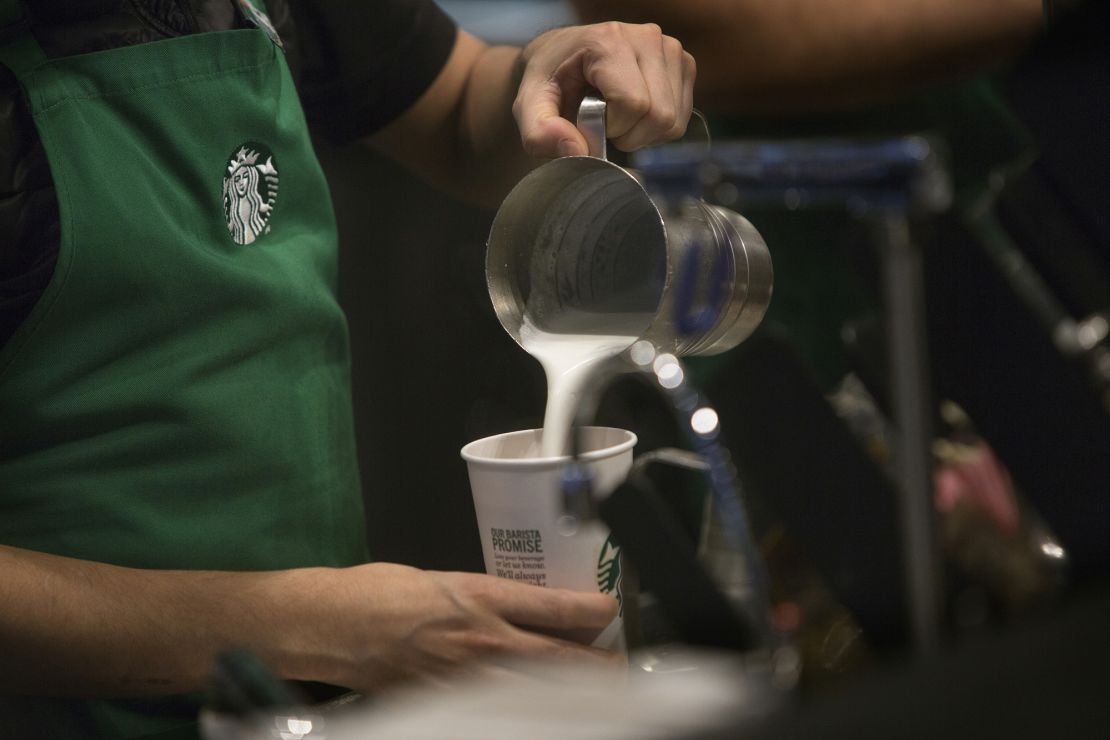
Starbucks says that it can’t legally apply new benefits to stores that have voted to unionize.
“Changes required to implement this new reward channel may modify the terms and conditions of employment for [employees], so we’re obligated by law to bring it to the bargaining table before launching it in union represented stores,” said a Starbucks spokesperson. So far, Starbucks and the union have not reached a first contract. Through November, 264 stores voted to form a union, and 58 voted against. There were about 10,200 company-operated locations in North America as of October.
But union organizers see it as an attempt to intimidate workers.
“Starbucks is introducing and rolling out all of these benefits in quick succession to essentially bribe non-union shops to remain non-union, and to retaliate against union workers — to discipline us for fighting for workers rights,” said Billie Adeosun, a Starbucks employee who organized the union drive at a location in Olympia, Washington.
The coffee chain has for years allowed customers to tip when they pay using their Starbucks card in the Starbucks app, or to leave a cash tip. Union stores don’t lose access to these options.
But Starbucks (SBUX) only started rolling out the credit and debit card tipping system, which is now available nationally, in September.
Tips grow thanks to new option
Despite reports of a backlash to the new option, it seems card tipping has been generally well received. Nearly half of credit or debit card purchases have included a tip since the rollout, according to the Starbucks spokesperson.
Starbucks teased the option for months before introducing it to stores. Card tipping “has been one of the most requested opportunities … this is something we’re going to accelerate as much as we can,” interim CEO Howard Schultz during an analyst call in May.
“You can’t prove, of course, that Starbucks took the idea from the union,” said Grace Norris, a Starbucks store employee. “But it’s clear that that’s what’s happened.”
Otherwise, Starbucks (SBUX) would have implemented the option earlier, she reasoned. The practice has become common at other bars, cafes and restaurants. “It is frustrating for Starbucks (SBUX) to continually roll out these new benefits and to purposely exclude unionized stores,” she said.
Norris works at a location in Lansing, Michigan. location, which voted to unionize in June and does not have the card tipping option. But she recently picked up a shift at a non-union location that does.
While working the drive-thru, she noticed that customers added gratuity to their purchase more often than not, making up for any awkwardness she felt in presenting them with the option to tip. At her store, “we would love” the opportunity to earn more tips, she said.
Despite the frustration, Adeosun, who started working at Starbucks in 2015, still sees a silver lining.
“Even though union-representated workers do not have credit card tipping at the moment, it still feels like a union victory,” she said. “These benefits wouldn’t even exist without the union campaign.”

